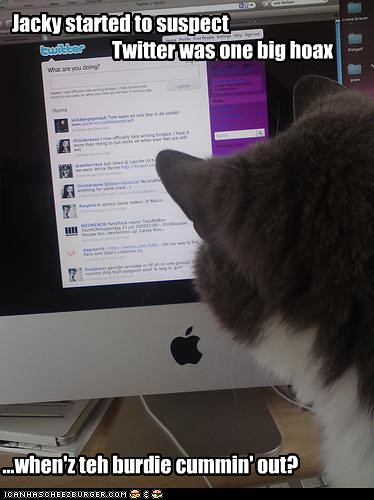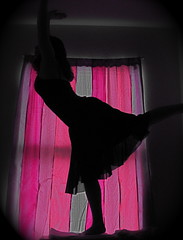 There have been some great ManWeek posts. Julian Cole and Matt Hazel both wrote about bullying – each with different perspectives. Matt Moore looked at how men can be uncomfortable with their own sense of self and Benjamin Law shared his love of Mariah Carey. Stan Johnson told us about the way he disappointed his parents with his career choice (advertising) – and who can blame them 😉 And Craig Wilson skirted the question but still managed to provide some interesting thoughts on men and the media.
There have been some great ManWeek posts. Julian Cole and Matt Hazel both wrote about bullying – each with different perspectives. Matt Moore looked at how men can be uncomfortable with their own sense of self and Benjamin Law shared his love of Mariah Carey. Stan Johnson told us about the way he disappointed his parents with his career choice (advertising) – and who can blame them 😉 And Craig Wilson skirted the question but still managed to provide some interesting thoughts on men and the media.
But it is Mark Pollard who calls us all out with a searingly honest post about some of the reasons why men find it so hard to talk about themselves:
Just to be clear, I don’t write about this stuff for sympathy or to put myself out there as this sensitive guy. I write about it hoping someone will relate to it – and not feel alone.
And, for me, this is where two aspects of manhood collide – courage and responsibility.
Now, I have always been “responsible”. Ever since I can remember I have been reliable – I cared for my younger brother and sister, I looked out for my cousins when they came to my tough high school (who am I kidding – they were bigger than me), I stayed sober and drove my friends home when they had too much to drink and I am always willing to share my time, experience and thinking with friends.
But I haven’t always been courageous.
If I am honest, this overarching sense of responsibility created an inner vortex of intensity that would very rarely erupt. I used to fantasize about what might happen should this personal fury ever slip past the guardians of my iron will.
Now, I have never been an imposing figure, physically. I was so short when I started high school that I had to jump to pull the chord in the bus that signalled the driver to stop. And while I loved team sport, I soon learned that size mattered on the field – and even the most enthusiastic player gets tired of being thrown around like a rag doll. My great asset was my quick wit, smart mouth and an ability to sail close to the wind – to walk a fine line between being funny and being offensive. But this always meant keeping control.
Now, this didn’t mean that I escaped being bullied. Far from it. But one of the things that I learned is that violence escalates when words fail. Mark Pollard calls this “Testosterone and the Neanderthal”. But violence doesn’t have to be physical. No matter whether you back a person into a corner by words or physicality, if there is no escape then there can only be violence.
The moments of my greatest shame have occurred when I did not have the courage NOT to speak – where I fell back upon my inner fury and directed it outward. But there are no “winners” when it comes to violence – and there is no pleasure that comes from belittling another and certainly no glory. It is, however, EASIER. It is easier to be cruel and cutting – to appear in control – but it is much harder (for men, though I have no doubt also for women) to be generous, inclusive, forgiving.
I constantly strive to live my life generously – and it is a struggle. It is easier not to witness the small injustices of daily life than to courageously respond to them with humanity and with care. It’s easier to state your opinion than to ask where you can help or how you can serve. And it’s easier to claim mastery than to be respected. But for me, this is what it is all about.
Tagging update: Let's take it out of the comments and see what Gordon Whitehead, Stephen Collins and Alan Jones have to say on the topic of ManWeek.




